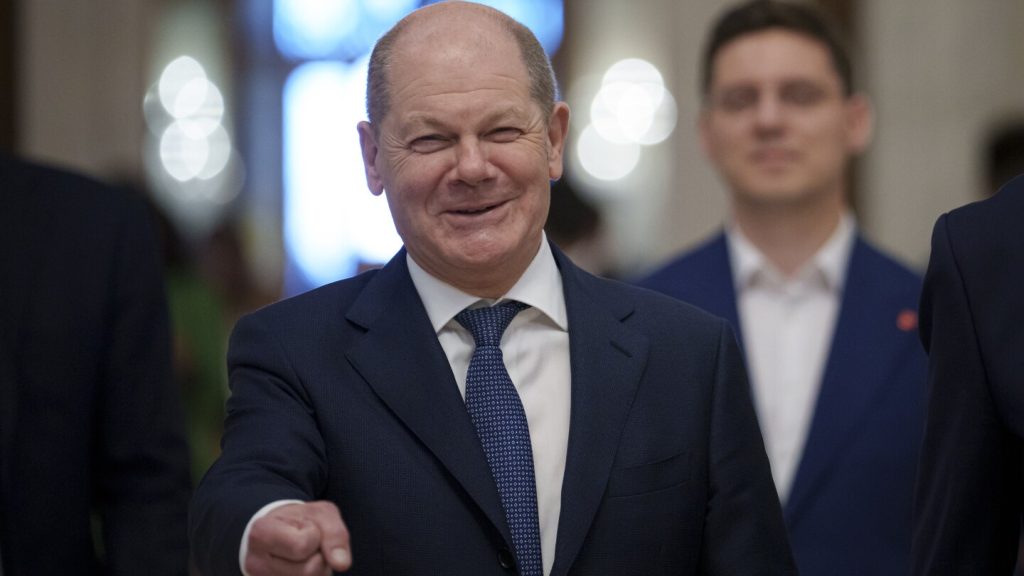German Chancellor Olaf Scholz’s visit to China is marked by tensions over the economic relationship between the two countries and differences regarding Russia’s invasion of Ukraine. Scholz’s trip began in Chongqing, where he visited a partially German-funded company and other sites in the city, known for its industrial production. The visit is aimed at strengthening ties between Germany and China, despite the frictions caused by Beijing’s support for Russia, which has strained relations with the West. German companies, such as BMW and Volkswagen, rely heavily on the Chinese market, but have faced challenges due to increased competition and regulatory pressures.
Germany has been pushing for a policy of “de-risking” to reduce its reliance on the Chinese market and suppliers, amid concerns about unfair market barriers and political interference. Despite these challenges, China remains Germany’s top trading partner, with 254.1 billion euros ($271 billion) in goods and services exchanged between the two countries in 2023. Chinese state broadcaster CCTV showed Scholz arriving in Chongqing, but did not capture any comments made to the welcoming delegation. Prior to his arrival, Scholz expressed solidarity with Ukraine and condemnation of Russia’s actions, aligning Germany with the West’s stance on the conflict.
China’s refusal to criticize Russia’s aggression has raised concerns, as it continues to maintain trade relations with Moscow and align its foreign policy with Moscow against the U.S.-led liberal political order. China has promoted its authoritarian one-party system as a superior alternative, further complicating its relationships with Western countries. As Scholz’s visit progresses, he is expected to visit Shanghai and Beijing, where he will meet with Chinese leader Xi Jinping and Premier Li Qiang to discuss economic cooperation and geopolitical issues. The visit comes at a critical time, with tensions between China and the West escalating over various issues, including Russia’s invasion of Ukraine.
The economic ties between Germany and China have been crucial for both countries, with Germany benefiting from China’s demand for investment and manufactured goods, while China relies on German technology and expertise. However, the relationship has faced challenges in recent years, with increased competition and regulatory pressures straining the partnership. The visit by Scholz is seen as an opportunity to address these issues and strengthen cooperation between the two countries, despite the differences over Russia’s actions in Ukraine. As the global geopolitical landscape continues to evolve, the relationship between Germany and China will be closely watched for its impact on international relations and economic dynamics.


